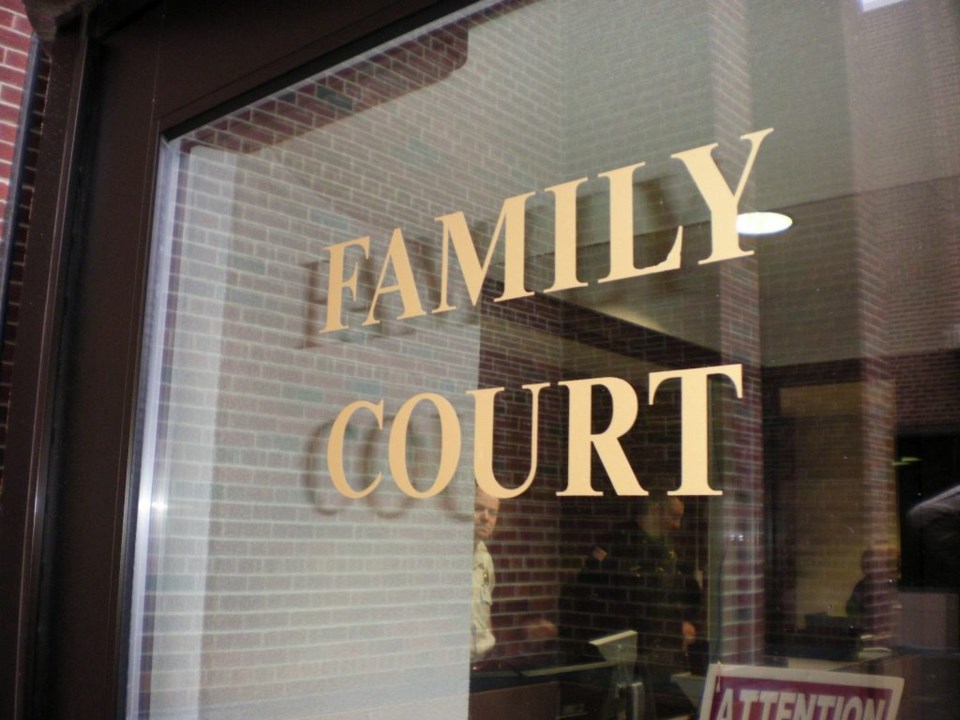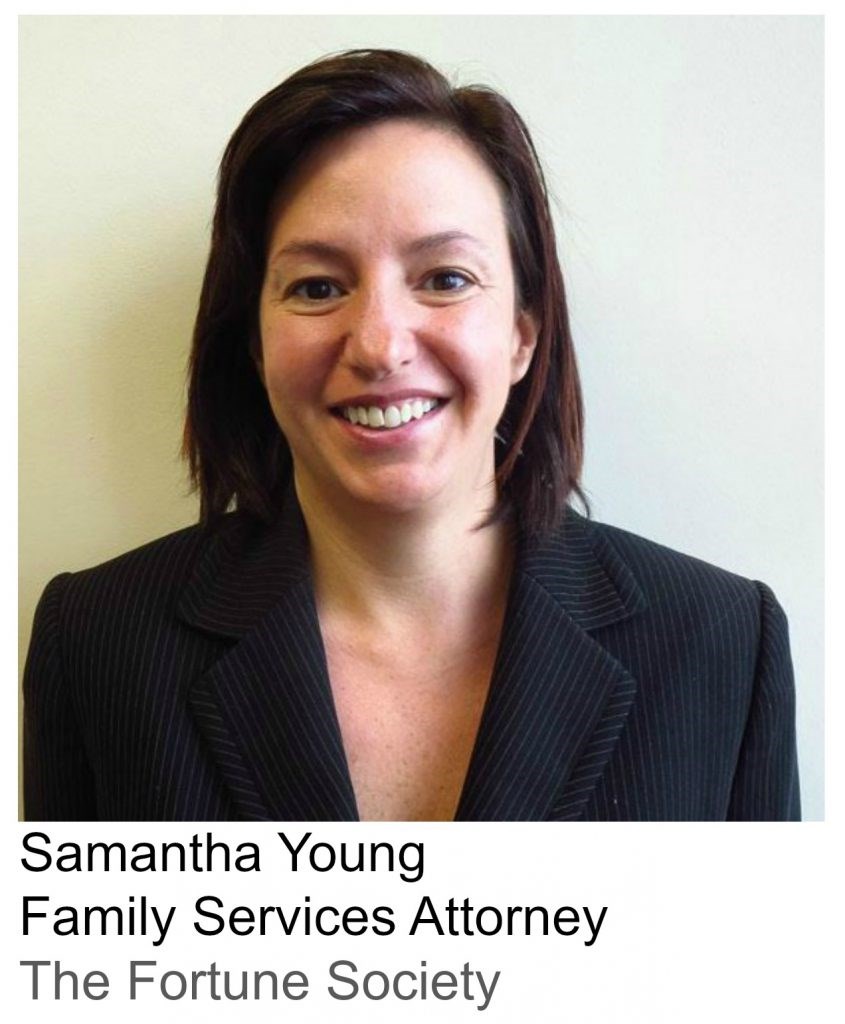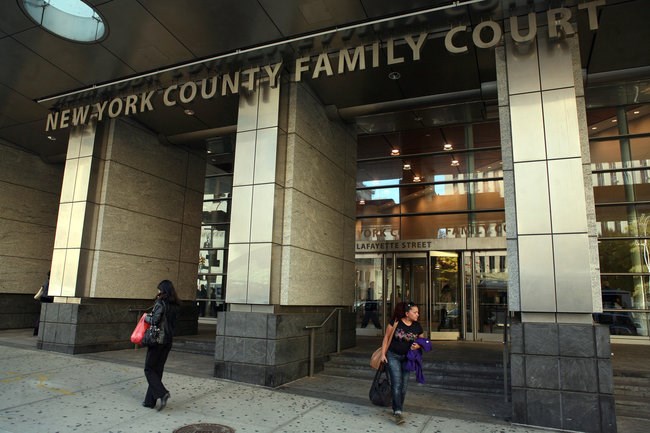
By Samantha Young, The Fortune Society
My name is Samantha Young and I am an attorney in the Family Services unit at The Fortune Society. In that role, I work with clients who enroll in the Family Services unit who have family court involvement. I represent clients with criminal justice history in Family Court proceedings in the five boroughs of New York City. The types of cases that Family Court normally hears involve paternity, child support, custody, visitation, abuse, and neglect cases. Through my work at The Fortune Society, I have found that many clients who are currently incarcerated or are returning from incarceration face unique issues when it comes to these types of family court cases.

Child support cases present many challenging issues for incarcerated and formerly incarcerated individuals. If you are currently incarcerated and have a child support order you have the right to petition the court for a downward modification of child support. Through this petition, you are asking the Family Court to lower the amount of child support you are paying. To file a petition for the modification from prison, you can write to the Family Court and request that they send you the forms to fill out. Unfortunately, if you do not file this petition your order will stay the same and the amount you owe (called arrears) will keep growing.
Once you are no longer incarcerated there are very few ways to eliminate or reduce these arrears. If you are released from prison owing a large amount of child support arrears, there are many consequences you can face. Arrears will not go away, even after your child turns 21. Declaring bankruptcy will not get rid of the arrears either. Additional consequences you can face when you owe arrears include: your state or federal tax refund can be taken; money can also be directly removed from your bank account; your driver's license and or professional licenses can be suspended until you have paid the arrears; and if you owe large amounts of money you could be potentially be put in jail for up to six months.
Visitation cases also have unique issues for incarcerated and formerly incarcerated individuals. If you are currently incarcerated and there is a visitation order, the person with custody of your children is supposed to bring them to visit you at your facility. The reality of the situation is that visitation at the facility rarely occurs. If there is no order from the court, your children do not have to be brought to visit. In both of these cases, you have the right to file a petition with the court and to request that the judge order that the person with custody bring your children to visit.

The judge will make that decision based on what is in the best interest of your children. And finally if you are currently incarcerated and are a respondent in a neglect case, it is very important for you to keep in contact with your children any way you can. Once again, you can petition the court for visitation to occur at your facility or you also can write letters and try to speak to them on the phone. These actions can help stop a termination of parental rights petition against you.
Whether you are currently incarcerated or have a history of incarceration, the Family Court system can be difficult to navigate. The most important advice I can give you is to be proactive and to be a strong advocate for yourself and your children. You will face many roadblocks along the way— do not give up.
This article originally published on The Fortune Society, June 26, 2017. The article was reprinted on BK Reader with expressed permission.



